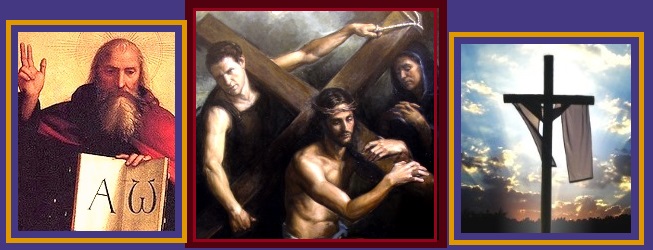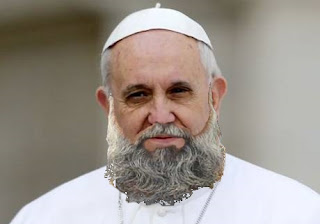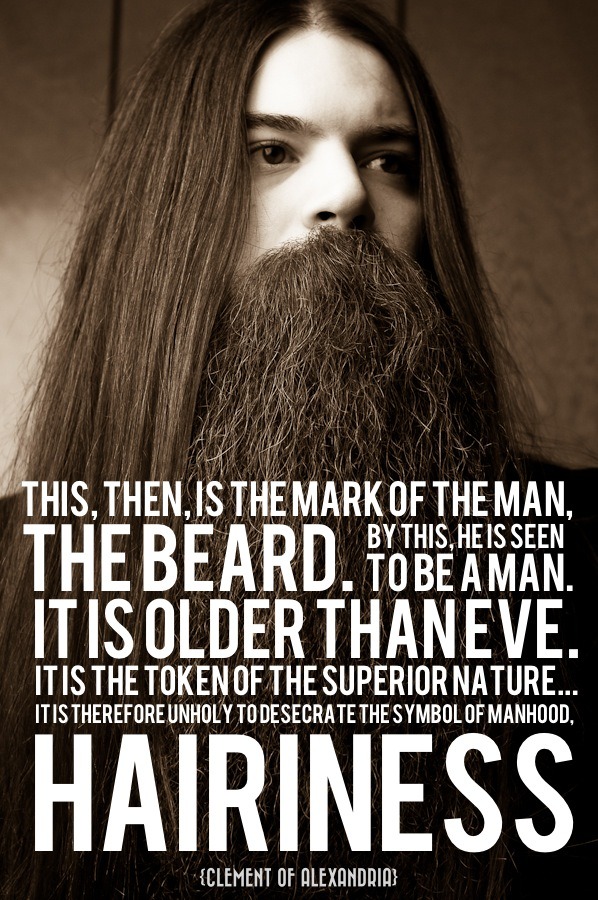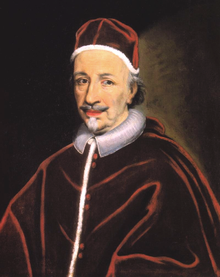My daughter, Lily, was born on Saturday by an emergency c-section with
no heartbeat and very little blood. They revived her, but she is now in
NICU and has suffered damage to her brain through lack of oxygen. I
would ask you to please pray for my daughter and encourage others to do
so as well. We desperately need a miracle! I have created a blog to keep
everyone updated on her progress. It can be found here:
http://prayforlily.blogspot.com/
Please share the blog with others and get the word out! Thank you and God Bless you!
"See what love the Father has given us,
that we should be called children of God; and so we are."
-1 John 3:1
Friday, November 29, 2013
Monday, November 11, 2013
New Blog
Check out my new blog, The Bearded Catholic, a blog about all things bearded, Catholic, and the intersection there between.
You can also "like" the Bearded Catholic on Facebook by going here. Spread the word!
Wednesday, October 09, 2013
God So Loved The World
Crucifixion is the most horrific and torturous type of death, perfected by the Romans, to inflict the maximal amount of pain upon the one crucified. This execution consisted of a person being affixed to the cross by having a single nail driven between both of his feet, and one nail in each of his palms or wrists. The person is thus hung in a manner in which the downward force makes it immensely difficult to allow air into the lungs, leading to death by asphyxiation. The only way to stop the immense feeling of suffocation is by pushing up on the nails in your hands and feet, causing excruciating pain, in order to allow the slightest bit of oxygen to flow into your lungs. When the Romans were feeling merciful, they smashed the victim’s legs with a giant mallet in order to speed up the agony. And, yet, Christians believe that God the Father sent his only begotten Son, who is innocent and free from all sin, into the world for the specific purpose of dying on the cross for the salvation of guilty and sinful men. ...
Continue reading my most recent article, The Providence of God and the Cross of Christ, over at Homiletic & Pastoral Review
Friday, October 04, 2013
The Theological Aesthetics Of Sherlock Holmes
"There is nothing in which deduction is so necessary as in religion. It can be built up as an exact science by the reasoner. Our highest assurance of the goodness of Providence seems to me to rest in the flowers. All other things, our powers, our desires, our food, are all really necessary for our existence in the first instance. But this rose is an extra. Its smell and its colour are an embellishment of life, not a condition of it. It is only goodness which gives extras, and so I say again that we have much to hope from the flowers."
-Sherlock Holmes, The Naval Treaty
Friday, September 20, 2013
How NOT To Read Pope Francis
A good rule of thumb is to not read what Pope Francis says through the lens of the headlines of the mainstream media. If you read a headline that says "Pope Francis thinks Catholics are obsessed with homosexuality, contraception, and abortion" and then uncritically accept that the headline is accurate and free of all bias, you are setting yourself up for failure!
And if you are reading a news report on what Francis said, with its own interpretation, instead of going to the actual primary source, WHAT IS WRONG WITH YOU??!! That is laziness of the worst kind. Go to the source! If you can read the New York Times, you can read and comprehend what the Pope said in the actual interview he gave. Think for yourself, do not let the New York Times or any other outlet think for you! You have no right to get mad at the Pope or criticize him because you are too lazy to read what he said in the context in which he said it. "But it's too long!" LAZY! If you can't be bothered to read the whole of what the Pope said, and you go around attacking him based on a faulty news source, you are committing a grave act against charity for which you will be called to account.
Here is the passage that is causing such controversy (but don't just read this, read the whole interview):
“We cannot insist only on issues related to abortion, gay marriage and the use of contraceptive methods. This is not possible. I have not spoken much about these things, and I was reprimanded for that. But when we speak about these issues, we have to talk about them in a context. The teaching of the church, for that matter, is clear and I am a son of the church, but it is not necessary to talk about these issues all the time."He doesn't say we can't insist on these issues, rather we can't insist only on these issues. Does this mean the Pope isn't concerned with these issues or that he thinks the Church should change her position on them? Read what he says! "The teaching of the church, for that matter, is clear and I am a son of the church..." Do you hear that, the teaching of the Church is clear! Have you seen any mainstream news reports that include this line? Why not, do you think? Because they are BIASED! They want Francis to say something that he isn't saying, so they pick and choose from the interview, taking his words out of context and fashioning sensational headlines so you will click on their links and give them higher traffic, which results in more adds and more money. Mainstream media is driven by mammon, why would you think they are going to give you the truth?! Francis is not going to change the teaching of the Church. He agrees with the teaching of the Church. The Church is clear on what she teaches and Francis is a son of the Church, which means what the Church teaches, he teaches and believes! It's all right there if you just read Francis according to Francis and not according to the mainstream media.
But, you say, he says "it is not necessary to talk about these issues all the time"! Look at the context!
"Proclamation in a missionary style focuses on the essentials, on the necessary things: this is also what fascinates and attracts more, what makes the heart burn, as it did for the disciples at Emmaus. We have to find a new balance; otherwise even the moral edifice of the church is likely to fall like a house of cards, losing the freshness and fragrance of the Gospel. The proposal of the Gospel must be more simple, profound, radiant. It is from this proposition that the moral consequences then flow."Francis, as a Jesuit faithful to the original charism of his order, is speaking in the context of missionary preaching. Francis is calling the Church to renewed missionary work, which focuses on the essentials. From the essentials flows the moral consequences. So what are the essentials that Francis wants us to focus on?
"Jesus Christ has saved you."This is the first proclamation. The gift of salvation through Christ must always be first. From that follows moral consequences. What are we being saved from? Sin. We have separated ourselves from God. What is needed is a recognition of this fact that leads to repentance and from there an acknowledgement that we cannot save ourselves; that salvation comes from Christ alone. With this first proclamation of Christ's saving action, we can be drawn to a life that seeks to live in imitation of Christ. It is the saving action of Christ that must guide all subsequent discussion, especially morality. If one focuses on morality apart from the reasons for living a moral life, the proclamation of morality is going to fall away, having been set on a rocky foundation. Why must we live a moral life? Because Christ died for us in order that we may have eternal life. Our new lives in Christ should reflect that reality.
Pope Francis thinks that we have lost a proper emphasis on the first proclamation. It is this that he hopes to restore. He does not wish to change the moral teaching of the Church, but rather to put it in its proper context. Pope Francis is a son of the Church and we should read him (him, not a news report that claims to represent him) with charity in the context of his fidelity to the Church. To do otherwise is to slander the Vicar of Christ.
Wednesday, August 28, 2013
Blackfriar Films Presents "Come My Way"
Blackfriar Films, the media division of the Eastern Province of the Order of Preachers, have now gotten into the music video business. Check out their new video for the hymn, "Come My Way".
They may not have beards, but they are Dominicans, and well, that's close enough!
They may not have beards, but they are Dominicans, and well, that's close enough!
Monday, August 26, 2013
Thursday, August 15, 2013
Forget The Papal Tiara...
…bring back the Papal Beard!
Yes, all those pseudo-traditionalists out there who are
clamoring away about the Papal Tiara--that recent addition to the papal
wardrobe first documented in the Liber
Pontificalis as being worn by Pope
Constantine (708-715)--would do better to direct their energy to an even older
tradition that dates back to the very first pope, Peter, namely, the Papal
Beard.
 |
| Last I checked, women wore tiaras and men wore beards! |
After
all, what is the main reason why Catholics want the Papal Tiara restored? It is
a sign of the Pope’s authority. Okay, but what better way for the Pope to say,
“I’m in charge, here,” than to sport a full beard? In the East, not to have a
beard is considered to be a sign of weakness and lack of manliness. All of the
Eastern Orthodox Patriarchs have beards, just like the Lord and the apostles
did.
 |
| Look at this beard! You Orthodox know who really runs the show in the East. |
Even
Vladimir Putin was no match for the Patriarch of Russia and his beard.
 |
| My beard must break you. |
Think
about it…this is a vital ecumenical issue! How can the East take us Roman
Catholics seriously when our faces are as soft as a parthenos after exfoliating
with Aegean sea salt?
And
by “us” I mean you!
 |
| No sea salts for this face. |
Just think of how quickly the schism of 1054 would be healed if Pope Francis grew a beard!
...maybe that will take a while.
In
the meantime, we as Catholic lay and clergy (provided your bishop and/or rules
of your order allow it) can throw away our razors and grow out our beards in
solidarity with our Eastern brethren (both Eastern Orthodox and Eastern-Catholic). So let it grow!
And when someone asks why you are doing it, tell them it’s for Christian unity.
Cardinal Cleemis has already started.
Cardinal Cleemis has already started.
 |
| Show off. |
Friday, July 05, 2013
Lumen Fidei, In Brief
Lumen Fidei, the
encyclical drafted by Pope Emeritus Benedict XVI and promulgated by Pope
Francis, is a worthy successor to Benedict’s Deus Caritas Est and Spe
Salvi full of material worthy of deeper meditation. There are many sections
that one could surmise come from the hand of either author, but in the end it
is pointless to do so. Whether a passage is more Benedictine or more Franciscan
is irrelevant as there is, contra what those on the left and on the far right
would have you think, complete continuity between these two successors of
Peter. I encourage everyone to read the encyclical in full, but for those who are pressed on time and cannot devote the
whole day to reading it (as I have), here is the ‘Cliff Notes’ version, if you
will, of the encyclical in 11 quotes which are some of my favorites.
Faith is thus linked to God’s fatherhood, which gives rise
to all creation; the God who calls Abraham is the Creator, the one who 'calls
into existence the things that do not exist' (Rom 4:17), the one who 'chose us
before the foundation of the world... and destined us for adoption
as his children' (Eph 1:4-5).
-Lumen Fidei 11.
-Lumen Fidei 11.
Christians are “one” (cf. Gal 3:28), yet in a way which does
not make them lose their individuality; in service to others, they come into
their own in the highest degree. This explains why, apart from this body,
outside this unity of the Church in Christ, outside this Church which — in the
words of Romano Guardini — “is the bearer within history of the plenary gaze of
Christ on the world” —faith loses its “measure”; it no
longer finds its equilibrium, the space needed to sustain itself. Faith is
necessarily ecclesial; it is professed from within the body of Christ as a
concrete communion of believers. It is against this ecclesial backdrop that
faith opens the individual Christian towards all others.
-Lumen Fidei 22.
-Lumen Fidei 22.
Faith without truth does not save, it does not provide a
sure footing. It remains a beautiful story, the projection of our deep yearning
for happiness, something capable of satisfying us to the extent that we are
willing to deceive ourselves. Either that, or it is reduced to a lofty
sentiment which brings consolation and cheer, yet remains prey to the vagaries
of our spirit and the changing seasons, incapable of sustaining a steady
journey through life.
-Lumen Fidei 24.
-Lumen Fidei 24.
Most people nowadays would not consider love as related in
any way to truth. Love is seen as an experience associated with the world of
fleeting emotions, no longer with truth. But is this an adequate description of
love? Love cannot be reduced to an ephemeral emotion. True, it engages our
affectivity, but in order to open it to the beloved and thus to blaze a trail
leading away from self-centredness and towards another
person, in order to build a lasting relationship; love aims at union with the
beloved. Here we begin to see how love requires truth. Only to the extent that
love is grounded in truth can it endure over time, can it transcend the passing
moment and be sufficiently solid to sustain a shared journey. If love is not
tied to truth, it falls prey to fickle emotions and cannot stand the test of
time. True love, on the other hand, unifies all the elements of our person and
becomes a new light pointing the way to a great and fulfilled life. Without
truth, love is incapable of establishing a firm bond; it cannot liberate our
isolated ego or redeem it from the fleeting moment in order to create life and
bear fruit.
-Lumen Fidei 27.
-Lumen Fidei 27.
If love needs truth, truth also needs love. Love and truth
are inseparable. Without love, truth becomes cold, impersonal and oppressive
for people’s day-to-day lives. The truth we seek, the truth that gives meaning
to our journey through life, enlightens us whenever we are touched by love. One
who loves realizes that love is an experience of truth, that it opens our eyes
to see reality in a new way, in union with the
beloved. In this sense, Saint Gregory the Great could write that “amor ipse
notitia est”, love is itself a kind of knowledge possessed of its own logic. It
is a relational way of viewing the world, which then becomes a form of shared
knowledge, vision through the eyes of another and a shared vision of all that
exists. William of Saint-Thierry, in the Middle Ages, follows
this tradition when he comments on the verse of the Song of Songs where the
lover says to the beloved, “Your eyes are doves” (Song 1:15). The two eyes,
says William, are faith-filled reason and love, which then become one in rising
to the contemplation of God, when our understanding becomes “an understanding
of enlightened love”.
-Lumen Fidei 27.
-Lumen Fidei 27.
Since faith is a light, it draws us into itself, inviting us
to explore ever more fully the horizon which it illumines, all the better to
know the object of our love. Christian theology is born of this desire.
Clearly, theology is impossible without faith; it is part of the very process
of faith, which seeks an ever deeper understanding of God’s self-disclosure
culminating in Christ. It follows that theology is more than
simply an effort of human reason to analyze and understand, along the lines of
the experimental sciences. God cannot be reduced to an object. He is a subject
who makes himself known and perceived in an interpersonal relationship. Right
faith orients reason to open itself to the light which comes from God, so that
reason, guided by love of the truth, can come to a deeper knowledge of God. The
great medieval theologians and teachers rightly held that theology, as a
science of faith, is a participation in God’s own knowledge of himself. It is
not just our discourse about God, but first and foremost the acceptance and the
pursuit of a deeper understanding of the word which God speaks to us, the word
which God speaks about himself, for he is an eternal dialogue of communion, and
he allows us to enter into this dialogue. Theology thus demands the humility to
be "touched" by God, admitting its own limitations before the
mystery, while striving to investigate, with the discipline proper to reason,
the inexhaustible riches of this mystery.
-Lumen Fidei 36.
-Lumen Fidei 36.
Theology also shares in the ecclesial form of faith; its
light is the light of the believing subject which is the Church. This implies,
on the one hand, that theology must be at the service of the faith of
Christians, that it must work humbly to protect and deepen the faith of
everyone, especially ordinary believers. On the other hand, because it draws
its life from faith, theology cannot consider
the magisterium of the Pope and the bishops in communion with him as something
extrinsic, a limitation of its freedom, but rather as one of its internal,
constitutive dimensions, for the magisterium ensures our contact with the
primordial source and thus provides the certainty of attaining to the word of
Christ in all its integrity.
-Lumen Fidei 36.
-Lumen Fidei 36.
It is impossible to believe on our own. Faith is not simply
an individual decision which takes place in the depths of the believer’s heart,
nor a completely private relationship between the "I" of the believer
and the divine "Thou", between an autonomous subject and God. By its
very nature, faith is open to the "We" of the Church; it always takes
place within her communion.
-Lumen Fidei 39.
-Lumen Fidei 39.
Since faith is one, it must be professed in all its purity
and integrity. Precisely because all the articles of faith are interconnected,
to deny one of them, even of those that seem least important, is tantamount to
distorting the whole.
-Lumen Fidei 48.
-Lumen Fidei 48.
The first setting in which faith enlightens the human city
is the family. I think first and foremost of the stable union of man and woman
in marriage. This union is born of their love, as a sign and presence of God’s
own love, and of the acknowledgment and acceptance of the goodness of sexual
differentiation, whereby spouses can become one flesh (cf. Gen 2:24) and are
enabled to give birth to a new life, a manifestation of
the Creator’s goodness, wisdom and loving plan. Grounded in this love, a man
and a woman can promise each other mutual love in a gesture which engages their
entire lives and mirrors many features of faith. Promising love for ever is
possible when we perceive a plan bigger than our own ideas and undertakings, a
plan which sustains us and enables us to surrender our future entirely to the
one we love. Faith also helps us to grasp in all its depth and richness the
begetting of children, as a sign of the love of the Creator who entrusts us
with the mystery of a new person. So it was that Sarah, by faith, became a
mother, for she trusted in God’s fidelity to his promise (cf. Heb 11:11).
-Lumen Fidei 52.
-Lumen Fidei 52.
Modernity sought to build a universal brotherhood based on
equality, yet we gradually came to realize that this brotherhood, lacking a
reference to a common Father as its ultimate foundation, cannot endure.
-Lumen Fidei 54.
-Lumen Fidei 54.
Because of her close bond with Jesus, Mary is strictly
connected to what we believe. As Virgin and Mother, Mary offers us a clear sign
of Christ’s divine sonship. The eternal origin of Christ is in the Father. He
is the Son in a total and unique sense, and so he is born in time without the
intervention of a man. As the Son, Jesus brings to the world a new beginning
and a new light, the fullness of God’s faithful love bestowed on humanity. But
Mary’s true motherhood also ensures for the Son of God an authentic human
history, true flesh in which he would die on the cross and rise from the dead.
-Lumen Fidei 59.
-Lumen Fidei 59.
Thursday, June 27, 2013
Refutation Of Heresy Through The Nicene Creed
We
recite the Nicene Creed, which was formulated at the Council of Nicaea (325)
and the Council of Constantinople (381), every Sunday at Mass. But do we really
take into account all that we are saying? Many people do not know that not only
are we professing what we believe, but in the Creed, we are also condemning
heretical notions of Christianity. The reason for this is that the Nicene Creed
arose out of ancient baptismal interrogations. Before being immersed into water
three times, the catechumen was asked if they believed in the Father, the Son,
and the Holy Spirit. When the fathers of Nicaea wished to condemn Arius, they
couldn’t merely have him recite the old formulations, because they were just
vague enough to allow for Arianism. So the fathers inserted phrases which would
be odious to Arius. They also inserted phrases that would be problematic for
other forms of heresy. See below:
I believe in one
God, (Against
Gnostics)
the Father almighty, (Against Gnostics)
maker of heaven and earth, (Against Gnostics)
of all things visible and invisible. (Against Gnostics)
the Father almighty, (Against Gnostics)
maker of heaven and earth, (Against Gnostics)
of all things visible and invisible. (Against Gnostics)
I believe in one
Lord Jesus Christ,
the Only Begotten Son of God, (Against Gnostics)
born of the Father before all ages. (Against Arians and Adoptionism)
God from God, Light from Light, (Against Arians)
true God from true God, (Against Arians)
begotten, not made, consubstantial with the Father; (Against Arians)
through him all things were made. (Against Gnostics and Arians)
For us men and for our salvation
he came down from heaven,
and by the Holy Spirit was incarnate of the Virgin Mary,
and became man. (Against Docetism and Ebionism)
For our sake he was crucified under Pontius Pilate,
he suffered death and was buried, (Against Docetism)
and rose again on the third day
in accordance with the Scriptures.
He ascended into heaven
and is seated at the right hand of the Father. (Against Modalism)
He will come again in glory
to judge the living and the dead
and his kingdom will have no end. (Against Modalism)
the Only Begotten Son of God, (Against Gnostics)
born of the Father before all ages. (Against Arians and Adoptionism)
God from God, Light from Light, (Against Arians)
true God from true God, (Against Arians)
begotten, not made, consubstantial with the Father; (Against Arians)
through him all things were made. (Against Gnostics and Arians)
For us men and for our salvation
he came down from heaven,
and by the Holy Spirit was incarnate of the Virgin Mary,
and became man. (Against Docetism and Ebionism)
For our sake he was crucified under Pontius Pilate,
he suffered death and was buried, (Against Docetism)
and rose again on the third day
in accordance with the Scriptures.
He ascended into heaven
and is seated at the right hand of the Father. (Against Modalism)
He will come again in glory
to judge the living and the dead
and his kingdom will have no end. (Against Modalism)
I believe in the
Holy Spirit, the Lord, the giver of life, (Against the Pneumatomachians [The Spirit Fighters])
who proceeds from the Father (Against the Pneumatomachians [The Spirit Fighters])
who proceeds from the Father (Against the Pneumatomachians [The Spirit Fighters])
and the Son, (Against the Greeks.
Originally against the Arians)
who with the Father and the Son is adored and glorified, (Against the Pneumatomachians [The Spirit Fighters])
who has spoken through the prophets. (Against the Pneumatomachians [The Spirit Fighters])
who with the Father and the Son is adored and glorified, (Against the Pneumatomachians [The Spirit Fighters])
who has spoken through the prophets. (Against the Pneumatomachians [The Spirit Fighters])
I believe in one,
holy, catholic and apostolic Church.
I confess one Baptism for the forgiveness of sins
and I look forward to the resurrection of the dead
and the life of the world to come. Amen.
I confess one Baptism for the forgiveness of sins
and I look forward to the resurrection of the dead
and the life of the world to come. Amen.
Tuesday, June 25, 2013
A Tale Of Two Mountains: An Exegesis Of Hebrews 12:18-29
Outline and Structural Analysis
vv. 18-21: Sinai
vv. 22-24: Zion, Heavenly Jerusalem
vv. 25-26: Warning with passage from Haggai 2:6.
v. 27: Explanation
of Haggai 2:6
vv. 28-29: Exhortation
There is an
inclusio with pyri and pyr in vv. 18 and 29, respectively
(Attridge 373, Vanhoye 209). In the Greek, the section consists of five
sentences (vv. 18-21; vv. 22-24; vv. 25-26; v. 27; vv. 28-29), with vv. 25-26
in the middle, suggesting that the warning about not refusing him who is
speaking combined with the quote from Haggai is central to the section. In vv.
18-21, the author gives a description of the institution of the Old Covenant at
Sinai, which is contrasted with the New Covenant characterized by Zion, the
heavenly Jerusalem in vv. 22-24. This contrast sets the stage for our author to
present a warning to his audience, reinforced by the Haggai quote (vv. 25-26).
Next, in v. 27 is a brief explanation of the Haggai quote followed by an
exhortation in vv. 28-29.
Labels:
Deuteronomy,
Exegesis,
Exodus,
Hebrews,
Jerusalem,
Jesus,
Moses,
Priesthood of Christ,
Sinai,
Spicq,
Vanhoye,
Zion
Sunday, June 09, 2013
7 More Reasons Why Catholic Men Should Have Beards
What? You thought there were only 10 reasons why Catholic men should have beards? Au contraire!
Since Friday was the Solemnity of the Sacred Heart of Jesus, Saturday was the Feast of the Immaculate Heart of Mary, and today is the Feast of the Sacred Beard of Christ (well, it should be!), I present to you seven more reasons why Catholic men should have beards:
7. The 12 Apostles
All of the Apostles had beards. What's that you say? Look in the picture, St. John didn't have a beard? Sure, when he was a youth that was the case, but not when he reached manhood. The writer of the Fourth Gospel was just as bearded as the rest of his brother Apostles.
6. Apostolic Constitutions 1.3:
Since Friday was the Solemnity of the Sacred Heart of Jesus, Saturday was the Feast of the Immaculate Heart of Mary, and today is the Feast of the Sacred Beard of Christ (well, it should be!), I present to you seven more reasons why Catholic men should have beards:
7. The 12 Apostles
All of the Apostles had beards. What's that you say? Look in the picture, St. John didn't have a beard? Sure, when he was a youth that was the case, but not when he reached manhood. The writer of the Fourth Gospel was just as bearded as the rest of his brother Apostles.
| "In the beginning was the beard..." |
6. Apostolic Constitutions 1.3:
"Nor may men destroy the hair of their beards, and
unnaturally change the form of a man. ...For God the Creator has made this
decent for women, but has determined that it is unsuitable for men."
5. St. Augustine, City of God XXII.24:
"Certain things are associated with the body in such a
way as to have beauty but no use. For example...the beard on his face. The fact
that the beard exists as a manly adornment and not for purposes of protection
is shown by the beardless faces of women, who are the weaker sex and for whom a
beard would therefore be more suitable if it were a protective device."
 | |
| Behold the beauty of my beard! |
4. Lactantius, On the Workmanship of God, or the Formation of
Man, ch. 7:
"Then the nature of the beard contributes in an incredible
degree to distinguish the maturity of bodies, or to the distinction of sex, or
to the beauty of manliness and strength; so that it appears that the system of
the whole work would not have been in agreement, if anything had been made
otherwise than it is."
3. St. Clement of Alexandria, Paedagogus, Bk 3, ch. 3:
"But for one who is a man to comb himself and shave himself
with a razor, for the sake of fine effect, to arrange his hair at the
looking-glass, to shave his cheeks, pluck hairs out of them, and smooth them,
how womanly! And, in truth, unless you saw them naked, you would suppose them
to be women. …For God wished women to be smooth, and rejoice in their locks
alone growing spontaneously, as a horse in his mane; but has adorned man, like
the lions, with a beard…"
In the same work, St. Clement goes on to say:
2. St. Dominic
Bearded St. Dominic was the founder of the greatest (objectively speaking, of course) religious order in the Catholic Church, the Order of Preachers. Now, here I would normally make a Jesuit joke, but out of reverence for our Holy Father, I will refrain.
 |
| Seen any Albigensians, lately? |
1. Beards are pro-life!
Wednesday, May 22, 2013
10 Papal Beard Facts
PAPAL BEARD FACT #1:
There have been a total of 266 Vicars of Christ. Out of these, 188 have had beards. That means 70% of the popes have had beards!
PAPAL BEARD FACT #2:
Out of the 188 bearded popes, 82 are saints and 2 are blesseds. 43% of bearded popes are saints.
Out of the 78 beardless popes, only 4 are saints and 5 are blesseds. Only 5% of beardless popes are saints.
PAPAL BEARD FACT #3:
There have been 86 total popes who are saints. 82 of these had beards. That is 95% of the papal saints!
PAPAL BEARD FACT #4:
For the first 643 years of the Church, Papal Beards reigned from 33AD with St. Peter to 676AD with Pope Adeodatus II.
PAPAL BEARD FACT #5:
The first pope sans beard, Pope Donus, is not a saint. Coincidence? I think not.
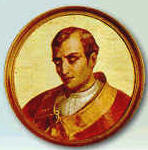 |
| My face is cold. |
PAPAL BEARD FACT #6
The next pope after Donus was Agatho. He had a long and marvelous beard. Oh, and he's a saint.
 |
| Doesn't this halo look good with my beard? |
After, Pope St. Agatho, beards reigned until 827AD with the election of Pope Valentine.
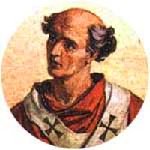 |
| Also not a saint. |
After Pope Valentine, there was a dispersion of beardless popes mixed with the bearded. The next stretch of bearded glory (with goatees towards the end) reigned from 1523AD to 1700AD, with the end of Pope Innocent XII's papacy.
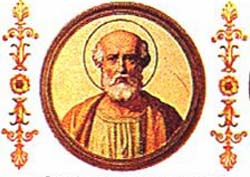 |
| His beard is a relic. |
There have been 9 popes named Stephen. All of them had beards.
Here is a picture of Pope Stephen IX:
 |
| I was rocking this beard style way before Lincoln! |
This guy would make a great Stephen X!
 |
| Ahem! My eyes are up here. |
Friday, May 17, 2013
10 Reasons Why Catholic Men Should Have Beards
10. William Shakespeare
He was Catholic and the greatest playwright to have ever lived. Also, he knew the value of a beard:
"He that hath a beard is more than a youth, and he that hath no beard is less than a man" -Much Ado About Nothing Act 2, Scene 1.
9. Aristotle
Had he lived after the time of Christ, he surely would have been a Catholic. He is likewise the main philosophical source for the greatest theologian of the Church, St. Thomas Aquinas (who, sadly, was beardless. But think of the heights he could have achieved had he been bearded!)
8. Scott Hahn
I've lost track of how many converts his beard has made!
7. St. Jerome
Only a man with such epic beardage could translate the entire Bible into Latin. An apocryphal story has it that the reason for his fiery temper was due to the constant interruptions of his translating by angels who wished to marvel at his whiskers.
6. St. Philip Neri
St. Philip Neri was the founder of the Congregation of the Oratory (the Oratorians). He had a great sense of humor and a fervent love for Christ. Blessed John Henry Newman was a member of the Oratory. Sadly, he also did not have a beard, but one of his spiritual brothers and a member of the Pittsburgh Oratory, Fr. David Abernethy, has a beard worthy of St. Philip.
5. St. Pius V
St. Pius V was the first Dominican Pope and was a great reformer (a true reformer, not like those other guys), who implemented the decrees of the Council of Trent. He excommunicated Queen Elizabeth I for her heresies and helped ward off the Muslim invasion at Lepanto by imploring the intercession of Our Lady.
4. St. Patrick
St. Patrick was the great evangelist to the Irish people. Yes, I know he wasn't Irish, but he loved Ireland and her people. Yes, I know he was not the first to bring Christianity to the island. But his beard had a much greater effect on those pagan chiefs than those who came before him!
3. St. Paul
Ephesians 6:17 says it all: "And take the helmet of salvation, and the sword of the Spirit, which is the word of God. Likewise, grow out the beard of truth."
2. St. Peter
Just look at that beard! You'd give him the keys to your kingdom, too.
1. Jesus Christ, Our Lord and Savior
Growing a beard is the perfect imitation of Christ.
Update: 7 More Reasons Why Catholic Men Should Have Beards.
 |
| "The Bard" was a corruption of his real nickname: "The Beard" |
"He that hath a beard is more than a youth, and he that hath no beard is less than a man" -Much Ado About Nothing Act 2, Scene 1.
9. Aristotle
 |
| His beard is praeparatio for Christian beards. |
8. Scott Hahn
 | |
| Scriptural Beard |
7. St. Jerome
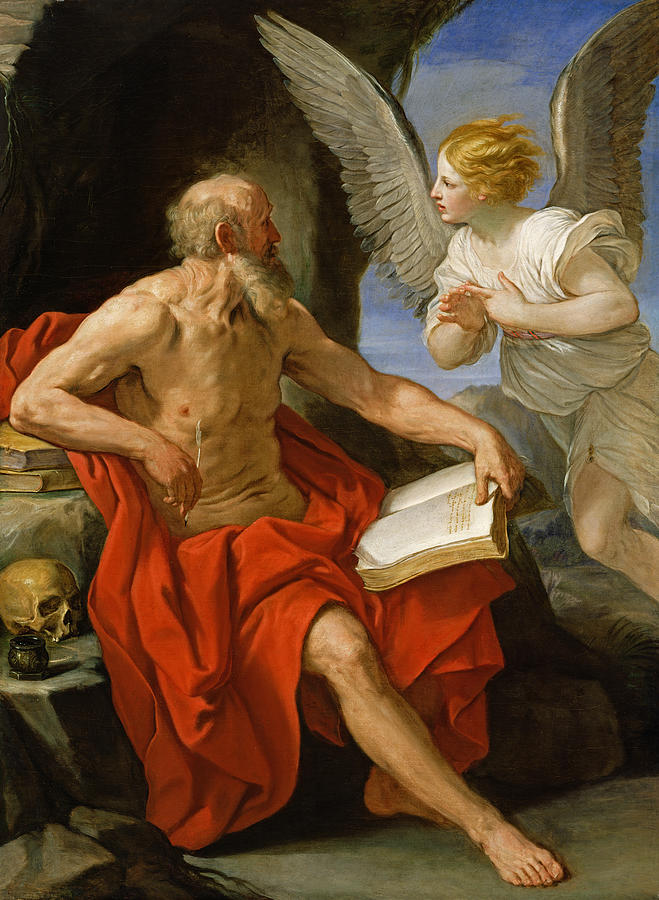 |
| Beard of Biblical Proportions |
6. St. Philip Neri
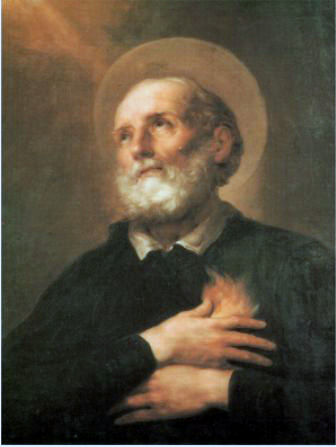 |
| His halo looks good with the beard. |
5. St. Pius V
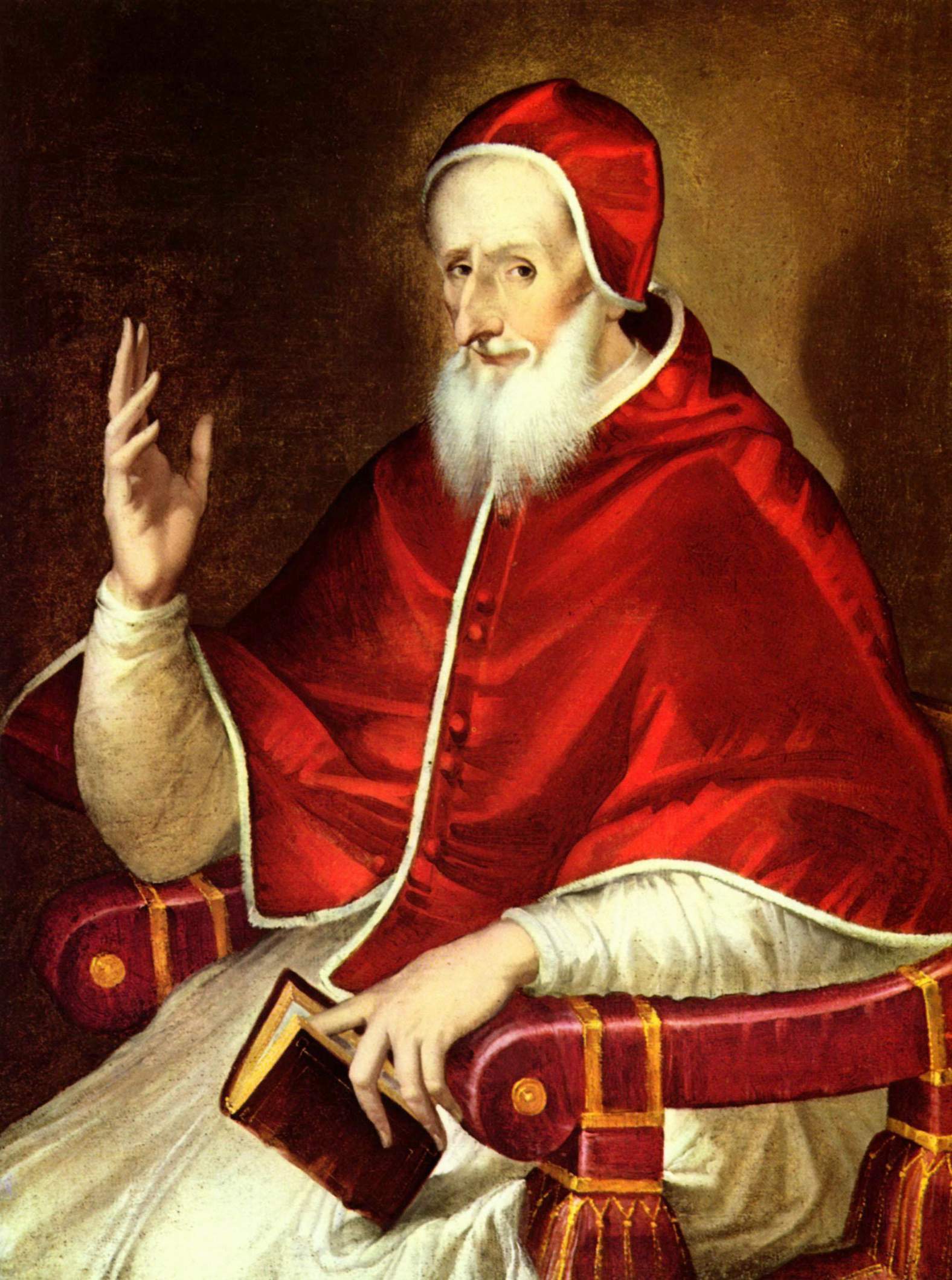 | |
| Dominican Beard |
4. St. Patrick
 |
| The beard that struck fear in reptiles everywhere! |
3. St. Paul
 | |
| Apostolic Beard |
2. St. Peter
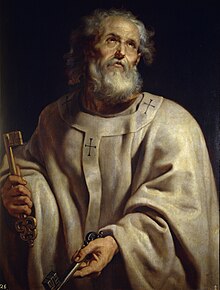 |
| Papal Beard |
1. Jesus Christ, Our Lord and Savior
 |
| Is there a devotion to the Sacred Beard? |
Update: 7 More Reasons Why Catholic Men Should Have Beards.
Saturday, March 16, 2013
Pope Francis On Wonder As The Beginning Of Philosophy
The beginning of every philosophy is wonder, and only wonder
leads to knowledge. Notice that moral and cultural degradation begin to arise
when this capacity for wonder is weakened or cancelled or when it dies. The
cultural opiate tends to cancel, weaken, or kill this capacity for wonder. Pope
Luciani [Pope John Paul I] once said that the drama of contemporary Christianity
lies in the fact that it puts categories and norms in the place of wonder. But
wonder comes before all categories; it is what leads me to seek, to open myself
up; it is what makes the answer—not a verbal or conceptual answer—possible for
me. If wonder opens me up as a question, the only response is the encounter, and only with the encounter
is my thirst quenched. And with nothing else is it quenched more.
-Pope Francis (formerly Jorge Mario Bergoglio), "For Man" in A Generative Thought: An Introduction to the Works of Luigi Guissani
Friday, March 15, 2013
Habemus Papam Franciscum!
I love Pope Francis already!
From all appearances and reports, he is a very humble and holy man, truly embodying the spirit of the saint of Assisi, after whom he is named. And I'm not talking about the tree-hugging, hippy, vulgarization of St. Francis, but the Christ-like saint who not only cared for the least among us, but also had the courage to preach the Gospel to the Sultan...and lived to tell about it. Francis confounds the "social justice-Catholic-in-name-only" notion that says that one cannot be both caring to the poor and oppressed, while steadfastly maintaining doctrinal orthodoxy. Let us pray for our new Holy Father, for he has a momentous task ahead of him. The world is increasingly hostile to the Gospel and all kinds of aberrations against the natural law and revealed law are being pushed in the public square. May our gentle, but firm Pope Francis lead the modern world back to Christ!
V. Oremus pro Pontifice nostro Francisco
R. Dominus conservet eum, et vivificet eum, et beatum faciat eum in terra, et non tradat eum in animam inimicorum eius. Pater Noster, Ave Maria
Deus, omnium fidelium pastor et rector, famulum tuum Franciscum, quem pastorem Ecclesiæ tuæ præesse voluisti, propitius respice: da ei, quæsumus, verbo et exemplo, quibus præest, proficere: ut ad vitam, una cum grege sibi credito, perveniat sempiternam. Per Christum, Dominum nostrum. Amen.
R. May the Lord preserve him, and give him life, and make him blessed upon the earth, and deliver him not up to the will of his enemies. Our Father, Hail Mary
O God, Shepherd and Ruler of all Thy faithful people, look mercifully upon Thy servant Francis, whom Thou hast chosen as shepherd to preside over Thy Church. Grant him, we beseech Thee, that by his word and example, he may edify those over whom he hath charge, so that together with the flock committed to him, may he attain everlasting life. Through Christ our Lord. Amen.
Here is also a biography of Pope Francis.
From all appearances and reports, he is a very humble and holy man, truly embodying the spirit of the saint of Assisi, after whom he is named. And I'm not talking about the tree-hugging, hippy, vulgarization of St. Francis, but the Christ-like saint who not only cared for the least among us, but also had the courage to preach the Gospel to the Sultan...and lived to tell about it. Francis confounds the "social justice-Catholic-in-name-only" notion that says that one cannot be both caring to the poor and oppressed, while steadfastly maintaining doctrinal orthodoxy. Let us pray for our new Holy Father, for he has a momentous task ahead of him. The world is increasingly hostile to the Gospel and all kinds of aberrations against the natural law and revealed law are being pushed in the public square. May our gentle, but firm Pope Francis lead the modern world back to Christ!
TRADITIONAL PRAYER (LATIN)
R. Dominus conservet eum, et vivificet eum, et beatum faciat eum in terra, et non tradat eum in animam inimicorum eius. Pater Noster, Ave Maria
Deus, omnium fidelium pastor et rector, famulum tuum Franciscum, quem pastorem Ecclesiæ tuæ præesse voluisti, propitius respice: da ei, quæsumus, verbo et exemplo, quibus præest, proficere: ut ad vitam, una cum grege sibi credito, perveniat sempiternam. Per Christum, Dominum nostrum. Amen.
TRADITIONAL PRAYER (ENGLISH)
V. Let us pray for Francis, our Pope.R. May the Lord preserve him, and give him life, and make him blessed upon the earth, and deliver him not up to the will of his enemies. Our Father, Hail Mary
O God, Shepherd and Ruler of all Thy faithful people, look mercifully upon Thy servant Francis, whom Thou hast chosen as shepherd to preside over Thy Church. Grant him, we beseech Thee, that by his word and example, he may edify those over whom he hath charge, so that together with the flock committed to him, may he attain everlasting life. Through Christ our Lord. Amen.
Here is also a biography of Pope Francis.
Friday, March 01, 2013
What Does A Pope Do When He Retires?
Catch up on reading, of course!
It is reported that His Holiness, Pope Emeritus Benedict XVI has brought with him and is currently (re-)reading Hans Urs von Balthasar's The Glory of the Lord: A Theological Aesthetics (which consists of 7 volumes). I have written on the first volume, Seeing The Form, as it relates to the interpretation of Scripture. Give it a read and then I would recommend taking after our dear Pope Emeritus' example and read this great work by von Balthasar.
Monday, February 11, 2013
Pope Benedict XVI Resigns
It is a sad day for Holy Mother Church. I have a great fondness for Pope Benedict XVI, as it was through reading his works as Cardinal Ratzinger that I started to not only move towards the Catholic Church, but also to fall in love with theology. Even as an Anglican, his election to the papacy was a moment of great joy for me. Yet, Pope Benedict has said from the beginning of his pontificate that after seeing what Bl. John Paul II went through in his last years, if he ever felt that he was not mentally or physically able to fulfill his office, it would be his duty to step down for the good of the Church. It appears that he now feels he has reached that point. It's very sad, and out of selfishness I wish he wouldn't, but he is much wiser than I and truly has what is best for the Church at the forefront of his thought. Below is the full text of his announcement.
"Dear Brothers,
I have convoked you to this Consistory, not only for the three canonizations, but also to communicate to you a decision of great importance for the life of the Church. After having repeatedly examined my conscience before God, I have come to the certainty that my strengths, due to an advanced age, are no longer suited to an adequate exercise of the Petrine ministry. I am well aware that this ministry, due to its essential spiritual nature, must be carried out not only with words and deeds, but no less with prayer and suffering. However, in today’s world, subject to so many rapid changes and shaken by questions of deep relevance for the life of faith, in order to govern the bark of Saint Peter and proclaim the Gospel, both strength of mind and body are necessary, strength which in the last few months, has deteriorated in me to the extent that I have had to recognize my incapacity to adequately fulfill the ministry entrusted to me. For this reason, and well aware of the seriousness of this act, with full freedom I declare that I renounce the ministry of Bishop of Rome, Successor of Saint Peter, entrusted to me by the Cardinals on 19 April 2005, in such a way, that as from 28 February 2013, at 20:00 hours, the See of Rome, the See of Saint Peter, will be vacant and a Conclave to elect the new Supreme Pontiff will have to be convoked by those whose competence it is.
Dear Brothers, I thank you most sincerely for all the love and work with which you have supported me in my ministry and I ask pardon for all my defects. And now, let us entrust the Holy Church to the care of Our Supreme Pastor, Our Lord Jesus Christ, and implore his holy Mother Mary, so that she may assist the Cardinal Fathers with her maternal solicitude, in electing a new Supreme Pontiff. With regard to myself, I wish to also devotedly serve the Holy Church of God in the future through a life dedicated to prayer".
From the Vatican, 10 February 2013
BENEDICTUS PP XVI
Monday, January 28, 2013
Charity As A Political Virtue
Now one can love
the good of a city in two ways: in one way to possess it, in another that it
might be preserved. If someone loves the good of a city in order to have and
own it, he is not a good political person, because in this way even a tyrant
loves the good of a city, in order to dominate it, which is to love oneself more
than the city. He wants this good for himself, not for the city.
But to love the
good of the city that it might be kept and defended, this is truly to love the
city and this makes a person a good political person, so much so that some
expose themselves to the danger of death and neglect their private good in
order to preserve or increase the good of the city. In the same way, to love
the good that is participated by the blessed, to love it so as to have or
possess it, does not establish the right relation between a person and
blessedness, because even evil people want this good.
But to love that good according to itself, that it may
remain and be shared out and that nothing be done against this good, this gives
to a person the right relation to that society of the blessed. And this is love
[caritas] which loves God for his sake and the neighbors, who are
capable of blessedness, as oneself.
-St. Thomas
Aquinas, De Virtutibus, 2.2 c.
Monday, January 07, 2013
Thus Sounds The Death Knell For The Anglican Communion
In 2003, Vicky Gene Robinson was elected as the first openly homosexual bishop of the Episcopal Church in the United States of America (ECUSA), a branch of the world-wide Anglican Communion, which has the Church of England as its primatial see. Orthodox Episcopalians who upheld the two thousand year old traditions of Christ were faced with a dilemma. How does one remain part of the Anglican Communion, while at the same time rejecting the heterodox downslide of ECUSA? A fascinating charade was worked out, whereby the Episcopalians who did not agree with the leadership of ECUSA would be under the jurisdiction of an Anglican Ordinary from Africa or South America, where traditional Christianity was upheld, allowing them to remain in America without being under the Presiding Bishop of ECUSA, and at the same time still in union with the Archbishop of Canterbury, the head of the Church of England and the Anglican Communion.
On paper, this is a nice little trick, but in reality ECUSA and the traditional Episcopalians who became the Anglican Church in North America (ACNA) are still in the same communion because they both are in union with the Archbishop of Canterbury, and thus are, by default, in union with each other. So long as the Church of England was on the level, so the sentiment went, all is well. Well, with the most recent ruling by the House of Bishops in the Church of England allowing homosexual bishops, all is not well.
Now, the safeguard that allowed the ACNA to be able to split from ECUSA and yet remain Anglican has been eliminated. The Church of England has turned its back on the orthodox Anglicans in its communion and left them with the choice to violate their consciences or cease being Anglicans. There is no way around it this time. No amount of slight of hand or misdirection will hide the reality that the orthodox Anglican is no longer welcomed in the Anglican Communion. The House of Bishops wishes to assuage any fears by stating that only those homosexuals who are in a partnership and vow to be celibate will be admitted to the episcopacy. Yet, if they are to be celibate, why the partnership in the first place? Do they think that the people are so naïve as to think that they will truly remain celibate while at the same time living in a homosexual partnership? One priest of the Church of England has already stated that the celibacy requirement is a let down. Might we not reasonably expect this to be the sentiment of most, if not all, those lobbying for homosexual partnered bishops?
At the end of the day, the choice for ACNA members who wish not to violate their consciences is clear; either they move to a different Protestant denomination, where they will most likely encounter similar battles, or join the Roman Catholic Church through the Anglican Ordinariate and thereby retain their Anglican heritage while simultaneously being part of the one communion that has upheld, and will continue to uphold, traditional Christianity from the beginning.
Saturday, January 05, 2013
Modernity: How Did We Get Here?
As a Catholic looking at Modernity, provided that one is aware of the
goings-on around him, the world can seem like a pretty messed up place.
And it is. Original Sin has radically effected the state of the world
and there continues a constant battle against personal sin throughout
the history of man. One of the effects of sin is the darkening of the
intellect. That's right....sin makes you stupid! Throughout Christian
history, however, there have been thinkers who, aided by the
supernatural grace of God, have risen above this ignorance of the
intellect to soar to great heights. The most famous of these was St.
Thomas Aquinas (d. 1274) who, building off of the great pre-Christian
thinker Aristotle, systematized the union of faith and reason unlike
anyone before or after. Yet, shortly after the death of Aquinas, the
Aristotelian-Thomistic approach to the world (i.e. the via antiqua) was subverted, leading us into the via moderna.
One of the first casualties of modernity was the rejection of the
philosophy of being found in Aristotelian-Thomistic metaphysics.
If you are interested in learning more about the via moderna, what it is, how we got here, and how to counter it, here are some books I would recommend:
Metaphysics -Aristotle
The root of the problem known as the via moderna goes back to
John Duns Scotus (d. 1308) who was the founder of voluntarism and
William of Ockham (d. 1347) who was the founder of nominalism. These two
concepts
(voluntarism and nominalism) replaced logos
(contemplative reason) as
the highest act of man and led to the idea of reason as will to power.
Ockham and Scotus
thereby influenced Luther, Bacon, Newton, Kant, etc., so that not only
was the notion that there are greater realities above mankind done away
with, being replaced by a mechanistic view of nature where man is the
highest reality in existence, but also nature was seen as something to
be controlled, manipulated, and conquered for purposes of humanity.
Rene Descartes (d. 1650) started what is known as the "turn to the self", whereby the
only certain things in existence are clear and distinct ideas (Cogito,
ergo sum/I think, therefore I am). Everything else is to be approached
with radical doubt. After Descartes came Immanuel Kant (d. 1804), another key figure in this
history. Due to him, modern man is egotistically centered on himself.
Kant's categorical imperative is based on radical autonomy so that each
man becomes the measure of the universe and the arbiter of law, rather
than something objective outside of man, such as an infinite God. In
Kant's world view there is no such thing as natural law, which Thomas
Aquinas defined as the "rational creature's participation of the eternal
law" (Summa Theologiae I-II, Q. 91 a. 2). Most of the modern world is
Kantian without having read Kant. Thus, if you know how to answer Kant, you
are on your way to steering people back in
the right direction.
If you are interested in learning more about the via moderna, what it is, how we got here, and how to counter it, here are some books I would recommend:
Metaphysics -Aristotle
Nicomachean Ethics -Aristotle
Summa Theologiae -St. Thomas Aquinas
The Last Superstition -Edward Feser
Socrates Meets Hume -Peter Kreeft
Socrates Meets Kant -Peter Kreeft
A Refutation of Moral Relativism -Peter Kreeft
Back to Virtue -Peter Kreeft
Faith and Certitude -Thomas Dubay
The Evidential Power of Beauty -Thomas Dubay
Answering the New Atheism -Scott Hahn and Benjamin Wiker
Reasons to Believe -Scott Hahn
Moral Darwinism: How We Became Hedonists -Benjamin Wiker
Politicizing the Bible: The Roots of Historical Criticism and the Secularization of Scripture 1300-1700 -Scott Hahn and Benjamin Wiker
Christianity and the Crises of Culture -Joseph Ratzinger
Introduction to Moral Theology -Romanus Cessario
Man and Woman He Created Them: A Theology of the Body -John Paul II
Another Sort of Learning
-James V. Shall
Leisure the Basis of Culture -Josep Pieper
Subscribe to:
Comments (Atom)

